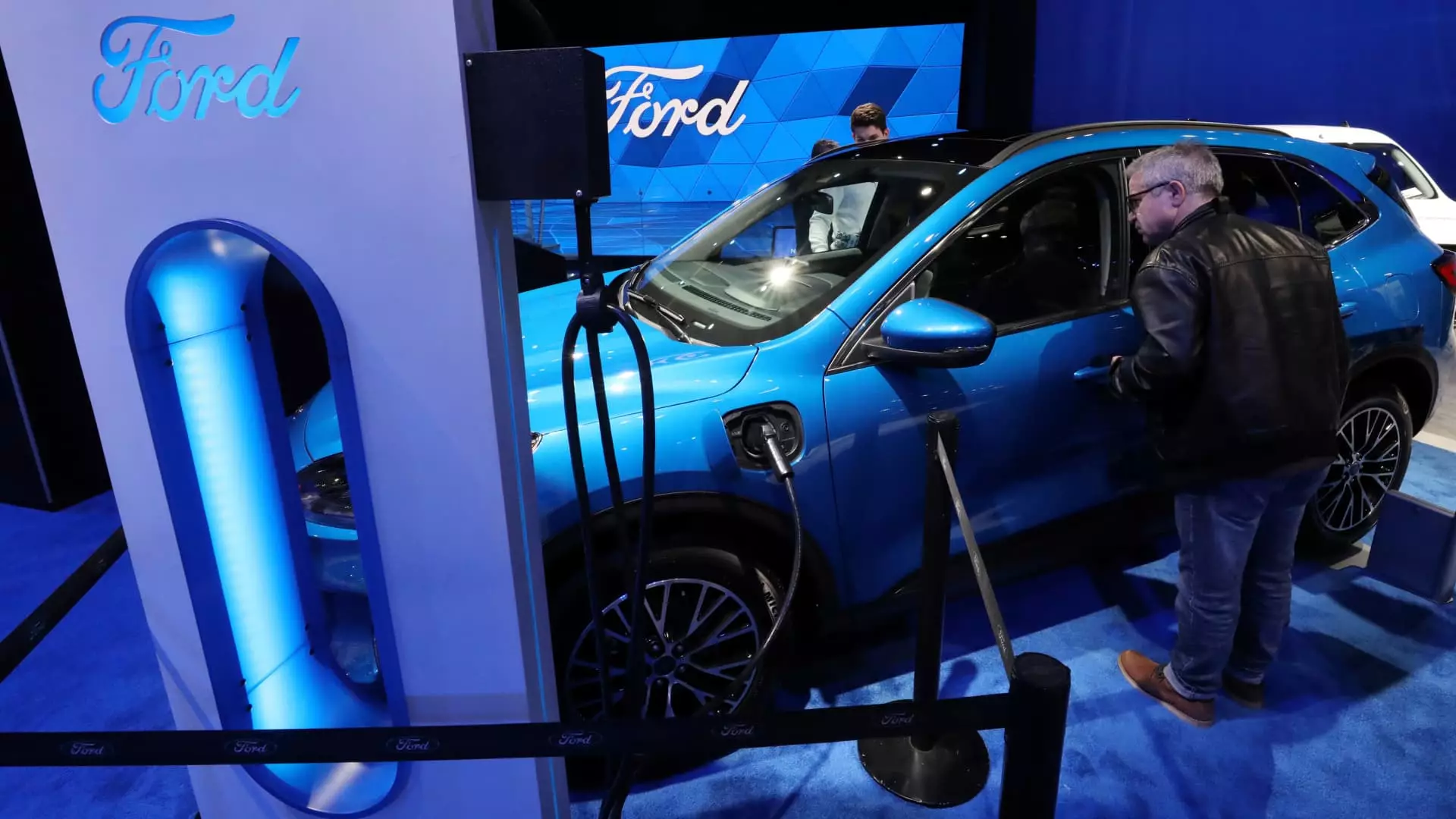Ford Motor’s decision to delay production of a new all-electric large SUV and pickup truck signifies a significant shift in its EV production plans. The company is now focusing on offering hybrid options across its entire North American lineup by 2030, indicating a change in strategy in response to slower than expected adoption of electric vehicles and high production costs. This delay in production is a clear indication of the challenges faced by the automotive industry in transitioning to EVs.
Despite being the No. 2 EV brand in the U.S., Ford ranked third in overall EV sales during the first quarter of the year, behind Tesla and Hyundai brands. This highlights the intense competition in the EV market and the need for Ford to reevaluate its strategy to remain competitive. The decision to delay production of the three-row SUV and pickup truck reflects the company’s commitment to scaling a profitable EV business, using capital wisely, and bringing the right vehicles to market at the right time.
Investment in EVs
Ford’s postponement of the three-row SUV production, which was part of a $1.3 billion investment to transition its Oakville Assembly Plant in Canada into an EV manufacturing hub, demonstrates the company’s focus on developing durable and high-value electric vehicles. By taking advantage of emerging battery technology and allowing the consumer market for three-row EVs to further develop, Ford aims to deliver innovative products that meet customer needs and preferences.
Future Plans for EV Expansion
Despite the delay in production of the large SUV and pickup truck, Ford is continuing its EV efforts by investing in new plants such as the “BlueOval City” campus in Tennessee. The company’s decision to focus on building breakthrough, next-generation EVs from the ground up and fully software enabled underscores its commitment to delivering exceptional digital experiences and services to customers. Ford’s decision to push back the production timeline for its next-generation all-electric truck at the Tennessee facility also aligns with its strategy to prioritize innovation and quality in its EV offerings.
Ford’s financial performance in the EV sector has been challenging, with the “Model e” electric vehicle business reporting losses of $4.7 billion in 2023. Despite the setbacks, the company saw an 86% increase in EV sales in the first quarter of 2024 compared to the previous year. The rise in hybrid sales by 42% and traditional vehicle sales by 2.6% showcases Ford’s ability to navigate the evolving automotive landscape while facing profitability challenges in the EV segment.
Ford’s decision to delay production of its all-electric large SUV and pickup truck reflects the company’s strategic shift towards offering hybrid options and investing in new EV plants to drive innovation and profitability. While facing stiff competition in the EV market, Ford remains committed to delivering high-quality electric vehicles that meet consumer demands and capitalize on emerging technologies. As the automotive industry continues to evolve, Ford’s emphasis on sustainable growth and market-driven decisions will be crucial in shaping its future in the rapidly changing EV landscape.

